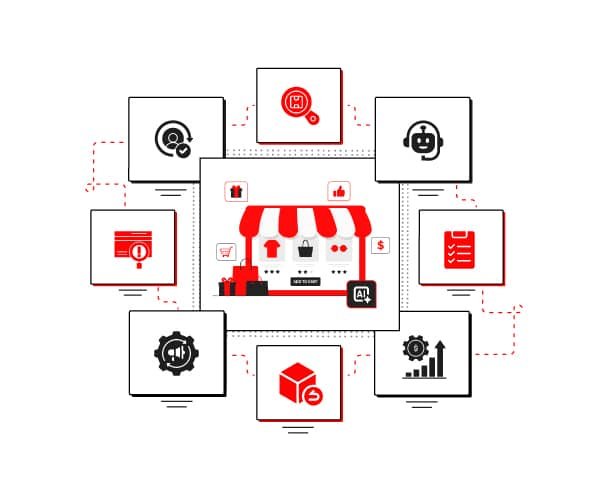
- AI Unlocked
- Services
Featured Insight

Looking for a more specific outcome? We’ll build a solution to get you there.
- Industries
Looking for a more specific outcome? We’ll build a solution to get you there.
- About
- Case Studies
- Resources
Looking for a more specific outcome? We’ll build a solution to get you there.
Looking for a more specific outcome? We’ll build a solution to get you there.
RBM Software partners with enterprises to design, build, and scale high-impact digital solutions. Our core services span strategy, engineering, data, and commerce, helping organizations modernize platforms, optimize operations, and accelerate measurable business outcomes. Each service is built to solve real-world complexity with speed, quality, and scalability.
Digital Strategy Consulting enables enterprises to assess their digital maturity, define modernization priorities, and build scalable digital capabilities. We connect business vision to engineering execution, ensuring every strategy converts into measurable …
We bring structure, scalability, and strategy to your AI journey. Our advanced ML pipelines and generative AI services help you harness data effectively, automate insight generation, and build adaptive systems that evolve alongside your business.
Strong data foundations decide how fast an enterprise can move. Our Data Engineering Services help you build reliable, connected, and scalable data ecosystems that turn fragmented information into trusted assets. We modernize pipelines, strengthen data quality, and create…
We take a consulting-led approach to redesign customer experience across journeys, channels and systems. Our teams align strategy, design and technology to help enterprises deliver simple, personal and consistent interactions that drive loyalty and growth.
Transform how shoppers browse, buy, and engage with your brand. Modern e-commerce solutions use intelligent design, automation, and AI-driven personalization to create seamless experiences across every channel. These capabilities increase engagement…
Enterprises must deliver products that respond to change, integrate across systems, and provide a measurable competitive advantage. Our Product Engineering services help define and execute the engineering strategy, transforming product roadmaps into ….
Enterprises must move beyond legacy infrastructure to scalable, secure cloud foundations that accelerate delivery, enhance performance, and ensure measurable business outcomes. Our Cloud Transformation service links business strategy to cloud adoption…
Information creates impact only when it is trusted & easy to access. Our Enterprise Search Solutions unify content, enrich data, and streamline knowledge discovery so your teams can accelerate workflows, improve decision-making, and activate insights.
Work with a team that understands enterprise complexity and delivers high-impact digital solutions across industries.
RBM Software partners with enterprises to design, build, and scale technology that drives performance, efficiency, and growth.
Vision. Expertise. Results.
Our team guarantees exceptional results.
We've streamlined processes to maximize efficiency.
We are the trusted choice for repeat clients worldwide.






SaaS, IT, and Digital Transformation coverage? Our subject matter experts are ready to provide the first-hand insights and high-value collaboration you need. Let’s create compelling content together and deliver maximum value to your audience.






We are available to collaborate and offer the following to journalists, bloggers, influencers, and speakers:
Direct access to authoritative and unique insights.
Collaborative support to create value for your audience.
Guaranteed resources when you need them most.






Your Next Chapter Starts Here. Fill out the application below and join the team to shape your future.